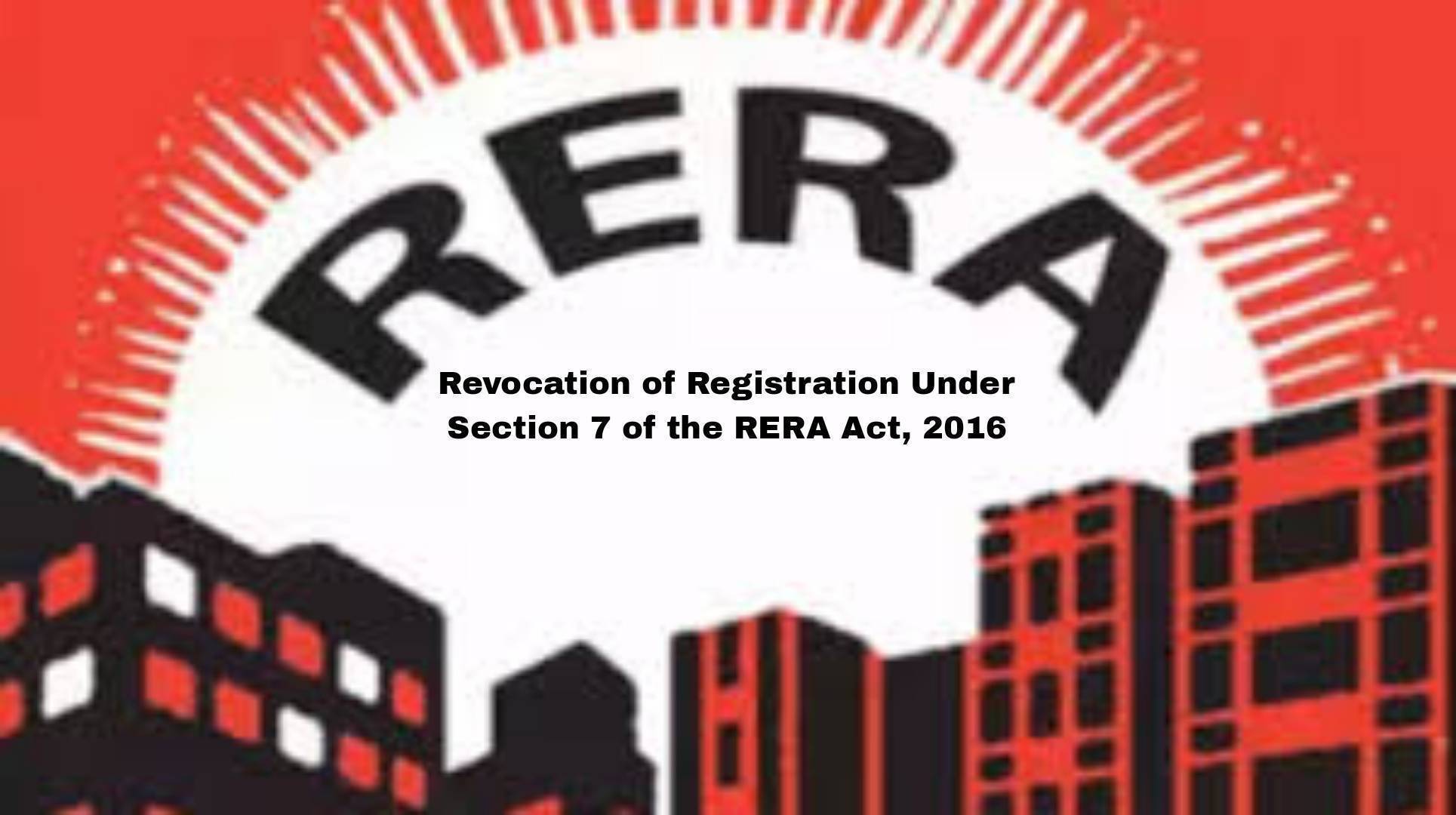When purchasing a home, the process can be daunting and filled with potential pitfalls, especially if you engage with an unregistered real estate agent or buy property in a project lacking valid Real Estate Regulatory Authority (RERA) registration. This article delves into why it's crucial to verify RERA registration of developers and agents, highlighting the risks associated with non-compliance and the steps you can take to ensure a secure transaction.
Understanding RERA and Its Objectives
Enacted in 2016, the Real Estate (Regulation and Development) Act (RERA) was introduced to protect homebuyers and increase transparency in the real estate sector. It aims to establish professionalism, accountability, and standardization, ensuring that both promoters and homebuyers adhere to fair practices. The Act mandates the registration of real estate projects and agents, providing a regulatory oversight mechanism to enforce contracts and resolve disputes efficiently.
RERA seeks to address several chronic issues in the real estate sector, such as delayed project completions, fund mismanagement, and misinformation. By creating a structured environment, the Act ensures that homebuyers receive their properties on time and as per the promised specifications. This regulation also imposes responsibilities on developers to maintain transparency about the project’s status and financial health, thereby reducing the chances of fraud.
Mandatory Registration Under RERA
According to RERA, any real estate project with a land area exceeding 500 square meters or more than eight apartments must be registered with the respective state RERA. This includes not only the projects but also the agents facilitating transactions for these projects. Developers must list the names of registered real estate agents on the RERA website when applying for project registration, ensuring that only compliant agents are involved in marketing these properties.
The requirement for registration extends to all promotional activities. This means that any advertisements, marketing materials, or sales pitches must include the RERA registration details. This transparency helps potential buyers verify the legitimacy of the project and the credibility of the agents involved, significantly reducing the risk of being misled by false promises.
Consequences of Dealing with Unregistered Entities
Engaging with an unregistered agent or purchasing a property in an unregistered project can lead to severe legal and financial repercussions:
1. Legal Ambiguities: Transactions with unregistered agents or projects lack legal protection, making it challenging to seek redressal in case of disputes. Without RERA registration, there is no formal mechanism to hold the developer or agent accountable for breaches of contract.
2. Financial Risks: Without RERA oversight, the risk of fraud, hidden charges, and project delays increases significantly. Buyers might find themselves paying for a property that is never delivered or facing unexpected costs not initially disclosed.
3. Lack of Transparency: Unregistered entities may provide misleading information, leaving homebuyers vulnerable to unethical practices. This could include false claims about project completion dates, amenities, or the legal status of the land.
4. Difficulties in Loan Procurement: Financial institutions may be reluctant to offer loans for properties in unregistered projects, complicating the financing process for buyers. Banks and other lending institutions prefer dealing with RERA-registered projects due to the added layer of security and compliance.
5. Marketability Issues: Properties in unregistered projects may face reduced marketability, impacting their resale value. Potential buyers may be wary of purchasing such properties due to the risks involved, leading to a depreciation in value.
Ensuring Compliance and Protecting Interests
To avoid the risks associated with unregistered entities, homebuyers must take proactive steps:
1. Verify Registration: Before engaging with a developer or agent, check their RERA registration status. This can be done on the respective state RERA website by entering details such as the project name, promoter's name, or registration number. This step ensures that the entity is authorized and compliant with RERA regulations, providing a layer of security for your investment.
2. Check Project Approvals: Ensure that all necessary approvals and permissions for the project are in place. Developers are required to upload these documents on the RERA website, providing transparency and assurance to buyers. This includes land ownership documents, approved building plans, and any other statutory approvals required for construction.
3. Avoid Unregistered Projects: If a project is not registered with RERA, refrain from purchasing it. The lack of built-in protections and legal recourse makes such transactions highly risky. Unregistered projects do not have the same oversight and accountability, increasing the likelihood of encountering issues such as construction delays or non-completion.
4. Consult Legal Experts: Consider seeking advice from legal professionals who specialize in real estate to understand the implications of your transaction and ensure compliance with all regulations. A real estate lawyer can provide invaluable guidance on contract terms, regulatory compliance, and risk mitigation strategies.
5. Monitor Project Updates: RERA mandates that developers regularly update the status of their projects on the RERA website. This includes construction progress, financial disclosures, and any changes in project plans. Homebuyers should periodically review these updates to stay informed about the project's progress and ensure that it is on track.
Benefits of Dealing with RERA-Registered Entities
1. Legal Protection: Transactions involving RERA-registered entities provide legal safeguards, ensuring that the terms of the agreement are upheld. In case of any deviations or disputes, homebuyers can rely on the regulatory framework to seek redressal.
2. Transparency: Registered projects and agents are required to maintain transparency, reducing the risk of fraud and providing clear, accurate information to buyers. This includes details about project timelines, financial disclosures, and compliance with statutory requirements.
3. Accountability: RERA registration holds developers and agents accountable, ensuring they adhere to timelines and deliver on promises. The regulatory authority can impose penalties and take corrective actions against entities that fail to comply with the Act.
4. Dispute Resolution: In case of disputes, homebuyers can approach RERA authorities for a fast-track resolution, ensuring their grievances are addressed promptly. RERA provides a dedicated grievance redressal mechanism, offering a quicker and more efficient resolution process compared to traditional legal avenues.
5. Investor Confidence: The regulatory framework boosts investor confidence, promoting a healthy and trustworthy real estate market. By ensuring that projects and agents comply with strict standards, RERA enhances the overall credibility and reliability of the real estate sector.
How to Verify RERA Registration?
Verifying the RERA registration of a project or agent is straightforward and can be done online. Here’s a step-by-step guide:
1. Visit the RERA Website: Go to the official RERA website of your state. Each state has its own RERA portal, which provides information specific to that region.
2. Access the Search Function: Navigate to the section where you can search for registered projects and agents. This is usually labeled as “Project Registration,” “Agent Registration,” or a similar term.
3. Enter Relevant Details: Input the necessary information such as the project name, developer’s name, or the RERA registration number. If you don’t have the registration number, you can often search using other details like the promoter's name or location of the project.
4. Review the Information: The search results will provide detailed information about the project or agent, including the registration status, project details, and any updates. Ensure that the registration is active and that the project is compliant with all RERA requirements.
5. Cross-Check Documents: Compare the information on the RERA website with the documents provided by the developer or agent. This includes checking for any discrepancies in project approvals, timelines, and financial disclosures.
Conclusion
The Real Estate (Regulation and Development) Act, 2016, has been instrumental in transforming the Indian real estate landscape. By mandating the registration of projects and agents, RERA ensures transparency, accountability, and protection for homebuyers. As a potential homebuyer, it is crucial to verify the RERA registration of the developers and agents you engage with, avoiding the significant risks associated with unregistered entities. By doing so, you can secure your investment, ensure legal protection, and contribute to a more transparent and reliable real estate market.
Image sources-housewise.in, pngitem.com









.png)